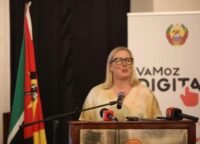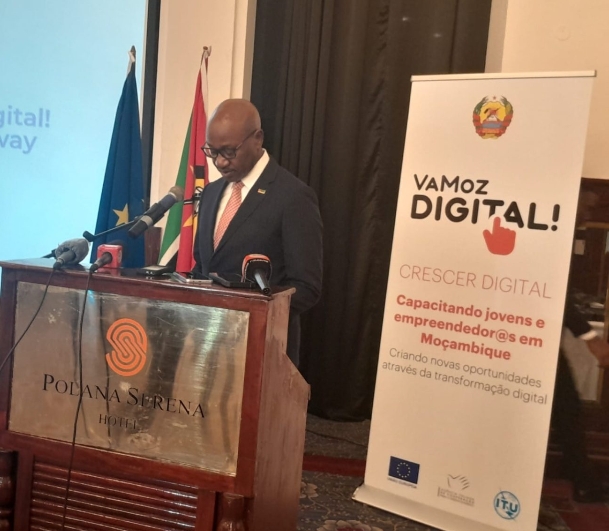The Minister of Transport and Communications, Mozambique, Mateus Magala, said that approximately 73% of the total Mozambican population remains without Internet services.
During the launching of the VaMoz Digital project in Maputo, Magala stated, “We are challenged to shift the paradigm, looking for creative, sustainable solutions based on the private sector’s engagement for the Internet for all approaches.”
Magala stated that the VaMoz project, which is co-funded through the European Union (EU), International Telecommunications Union (ITU) and the Italian Cooperation Agency, cannot afford to overlook or neglect the need to develop human capital, particularly in Information and Communication Technology (ICT).
He later noted, “We cannot conduct digital transformation without highly trained technicians in Cybersecurity, artificial intelligence, robotics, 5th generation networks, just to name a few.”
The government wants a technical team accompanying VaMoz Digital to come up with legal restructuring recommendations and new forms of negotiations for the field of digital economy, frequency sharing, and incentives for physical Internet connection, particularly in rural areas.
Read Also: FG Set to Sell Three Ageing Presidential Aircraft to Fund New Ones
Despite Staffing Challenges, Parirenyatwa Radiotherapy Unit Restarts Operations
On her part, the European Commissioner for international partnerships, Jutta Urpilainen, said that due to the digital revolution, the pace of connections has always been rising. Thus, it is essential to manage the process to unleash the full potential and ensure a fair distribution of the benefits between everyone involved.
The VaMoz Digital project’s goal would be to increase private sector investment, financing, training for girls, women, and people with disabilities, promoting inclusion, with focus on youth.
“This is a country of young people. More than 50 per cent of Mozambican citizens are between the ages of 10 and 35 and that’s why we need to pay attention to youth,” said Urpilainen.

She said that the EU will also persist in funding efforts to enhance the quality of education in Mozambique and in retaining girls in school, especially at the primary level.
She frowned at the fact that many girls are forced out of school upon getting pregnant through early marriages and pregnancy, a situation that compasses education and poses a hindrance to the future prosperity of the country. ‘


